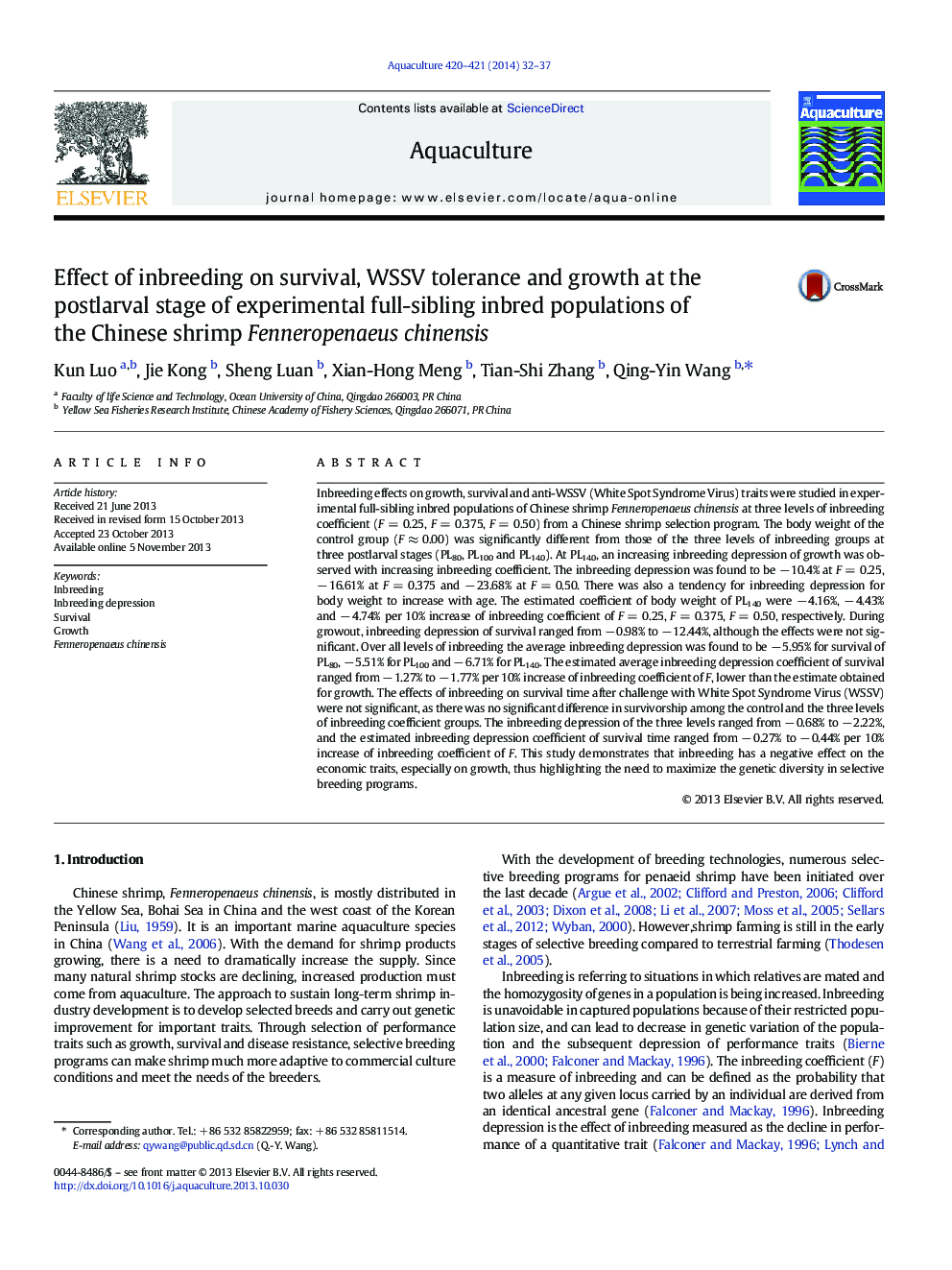| Article ID | Journal | Published Year | Pages | File Type |
|---|---|---|---|---|
| 2421979 | Aquaculture | 2014 | 6 Pages |
•We constructed inbreeding families which were evaluated by inbreeding depression.•Inbreeding had a negative effect on growth at different stages.•We assessed the impact of inbreeding on survivorship after challenge with WSSV.•It is necessary to maximize the genetic diversity in the following programs.
Inbreeding effects on growth, survival and anti-WSSV (White Spot Syndrome Virus) traits were studied in experimental full-sibling inbred populations of Chinese shrimp Fenneropenaeus chinensis at three levels of inbreeding coefficient (F = 0.25, F = 0.375, F = 0.50) from a Chinese shrimp selection program. The body weight of the control group (F ≈ 0.00) was significantly different from those of the three levels of inbreeding groups at three postlarval stages (PL80, PL100 and PL140). At PL140, an increasing inbreeding depression of growth was observed with increasing inbreeding coefficient. The inbreeding depression was found to be − 10.4% at F = 0.25, − 16.61% at F = 0.375 and − 23.68% at F = 0.50. There was also a tendency for inbreeding depression for body weight to increase with age. The estimated coefficient of body weight of PL140 were − 4.16%, − 4.43% and − 4.74% per 10% increase of inbreeding coefficient of F = 0.25, F = 0.375, F = 0.50, respectively. During growout, inbreeding depression of survival ranged from − 0.98% to − 12.44%, although the effects were not significant. Over all levels of inbreeding the average inbreeding depression was found to be − 5.95% for survival of PL80, − 5.51% for PL100 and − 6.71% for PL140. The estimated average inbreeding depression coefficient of survival ranged from − 1.27% to − 1.77% per 10% increase of inbreeding coefficient of F, lower than the estimate obtained for growth. The effects of inbreeding on survival time after challenge with White Spot Syndrome Virus (WSSV) were not significant, as there was no significant difference in survivorship among the control and the three levels of inbreeding coefficient groups. The inbreeding depression of the three levels ranged from − 0.68% to − 2.22%, and the estimated inbreeding depression coefficient of survival time ranged from − 0.27% to − 0.44% per 10% increase of inbreeding coefficient of F. This study demonstrates that inbreeding has a negative effect on the economic traits, especially on growth, thus highlighting the need to maximize the genetic diversity in selective breeding programs.
